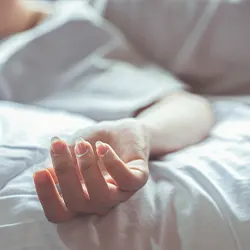Table Of Contents
- Philips CPAP Lawsuit Overview
- Latest Philips CPAP Lawsuit 2026 Updates
- FDA Reports and Statistics
- Philips CPAP Injuries & Side Effects
- Do You Qualify for a Philips CPAP Lawsuit?
- Philips CPAP Recall Information
- Statute of Limitations for Philips CPAP Lawsuits
- FAQs
- 1. What compensation can be sought in a Philips CPAP machine lawsuit?
- 2. How can users check if their Philips CPAP machine is part of the recall?
- 3. What should I do if I’m currently using a recalled Philips CPAP machine?
- 4. What evidence is needed for a successful Philips CPAP lawsuit?
- 5. Can I join a class action lawsuit for my Philips CPAP injuries?
- 6. How long will it take to resolve my Philips CPAP lawsuit?
- Get Your Free Philips CPAP Lawsuit Evaluation With Our Lawyers
You may be entitled to recover compensation and our legal team can help. Please click the button below for a Free Consultation or call us toll-free 24 hrs/day for legal advice by dialing (866) 588-0600.
Philips CPAP Lawsuit Overview
The Philips CPAP lawsuits involve claims against Philips Respironics over defective breathing devices that pose serious health risks to users.
The primary allegation is that the polyester-based polyurethane (PE-PUR) sound abatement foam in these devices can degrade, causing users to inhale or ingest toxic particles and chemicals that may lead to cancer and respiratory issues.
In June 2021, Philips issued a massive recall affecting millions of CPAP, BiPAP, and ventilator devices after receiving numerous complaints from patients.
The FDA classified this as a Class I recall, the most serious type, indicating that use of these devices may cause serious injuries or death.
Latest Philips CPAP Lawsuit 2026 Updates
- April 2025: The multidistrict litigation (MDL) for Philips CPAP lawsuits continues to progress in federal court in Pennsylvania, with settlement discussions underway for cancer and serious injury cases. Preliminary settlement amounts are estimated to range between $100,000 and $500,000 for qualifying plaintiffs, though trial values could be significantly higher if liability is established [1].
- February 2025 – Philips has expanded its recall to include certain Trilogy EVO ventilators due to the same PE-PUR foam degradation issues, affecting 215 ventilators and 51 repair kits in the U.S. manufactured and distributed between April 15, 2021, and May 24, 2021 [2].
- September 2023 – New evidence has emerged in discovery proceedings suggesting Philips was aware of the foam degradation issues for years before initiating the recall. According to court documents, users had been complaining about “black particles” in their devices long before the June 2021 recall announcement [3].
- June 14, 2021 – Philips issues a voluntary recall of millions of CPAP, BiPAP, and mechanical ventilator devices due to risks that the PE-PUR sound abatement foam can degrade, releasing particles and toxic chemicals that users could inhale or ingest. The recall, affecting devices manufactured over the previous decade, was prompted by concerns about potential health risks including respiratory issues and exposure to volatile organic compounds, as confirmed by Philips, the FDA, and major medical institutions [4].
FDA Reports and Statistics
The FDA has released critical information regarding the Philips CPAP recall and associated health risks:
- On June 14, 2021, Philips issued a voluntary recall notification for specific Bi-Level PAP, CPAP, and mechanical ventilator devices due to potential health risks from the PE-PUR foam [5].
- The FDA classified this as a Class I recall on December 21, 2021, indicating the most serious risk category where device use may cause serious injury or death.
- Philips reported a complaint rate of 0.03% in 2020 related to foam degradation issues.
- The recall affects millions of devices worldwide, with a significant percentage in the United States.
- On February 27, 2020, the FDA warned about risks associated with using ozone gas or UV light products for cleaning CPAP machines, noting reports of cough, difficulty breathing, and other adverse effects [6].
Despite a low complaint rate (0.03% in 2020), Philips Respironics determined based on testing that there are possible risks to Philips CPAP users related to this type of foam. The risks include that the polyurethane foam may degrade into particles which may enter the mechanical ventilators BIPAP and CPAP air pathway and be ingested or inhaled by the user, and the foam may off-gas certain chemicals. The foam degradation may be exacerbated by the use of unapproved cleaning methods, such as ozone, and high heat and high humidity environments may also contribute to foam degradation.- FDA.
Philips CPAP Injuries & Side Effects
Users of recalled Philips CPAP, BiPAP, and ventilator devices have reported a range of serious health complications related to exposure to degraded foam particles and chemicals.
- Respiratory Issues: Irritation, inflammation, chest pressure, sinus infection, reactive airway disease (RAD), and acute respiratory distress syndrome (ARDS).
- Cancer: Multiple types including lung cancer, bladder cancer, kidney cancer, liver cancer, breast cancer, brain cancer, prostate cancer, stomach cancer, leukemia, non-Hodgkin lymphoma, multiple myeloma, and more.
- Organ Damage: Liver damage, kidney damage, lung damage, and other organ failure resulting from toxic exposure.
- Immediate Symptoms: Headache, dizziness, nausea, vomiting, hypersensitivity reactions, and irritation of the eyes, nose, and respiratory tract.
The FDA has received reports from patients experiencing cough, difficulty breathing, nasal irritation, headaches, asthma attacks, and other breathing complaints when ozone gas-based products were used to clean, sanitize or disinfect CPAP machines and accessories.- FDA.
Do You Qualify for a Philips CPAP Lawsuit?
You may qualify for a Philips CPAP lawsuit if:
- You used one of the recalled Philips CPAP, BiPAP, or ventilator devices (see list below).
- You developed a serious health condition such as cancer, organ damage, or respiratory issues after using the device.
- Your condition was diagnosed after using the recalled device.
- You have medical documentation linking your health condition to the device use.
- You still have your recalled device (or documentation of your device) as evidence.
Recalled device models include:
- DreamStation ASV
- DreamStation ST
- AVAPS
- SystemOne ASV4
- C Series ASV
- OmniLab Advanced Plus
- SystemOne (Q Series)
- DreamStation CPAP Machines
- DreamStation Auto BIPAP and CPAP machines
- DreamStation BiPAP Sleep Apnea Machines
- DreamStation Go
- Dorma 400 and 500
- CPAP REMStar SE Auto CPAP
- Trilogy 100 and 200
- Garbin Plus
- Aeris LifeVent
- A-Series BiPAP machine
- Philips Ventilator
- Trilogy EVO ventilators (model numbers DS2110X11B and KR2110X15B)
Evidence Required for a Philips CPAP Lawsuit
To strengthen your Philips CPAP lawsuit, you should gather:
- Medical Records: Documentation of your diagnosis and treatment for conditions potentially linked to the recalled device.
- Device Documentation: Proof of ownership, including receipts, insurance claims, or prescription records.
- The Device Itself: It’s crucial to keep your recalled Philips device as physical evidence for your case.
- Usage History: Records showing how long and how frequently you used the device.
- Symptom Journal: Detailed notes about symptoms experienced during and after using the device.
Read More: Trilogy EVO Ventilators Lawsuit
Damages You Can Recover
Victims of defective Philips CPAP devices may be eligible to recover compensation for:
- Medical Expenses: Costs for diagnosis, treatment, surgeries, medications, and ongoing care.
- Lost Wages: Compensation for time off work due to illness and medical appointments.
- Pain and Suffering: Physical discomfort and emotional distress caused by your condition.
- Reduced Quality of Life: Impact on your ability to enjoy daily activities and relationships.
- Punitive Damages: Additional compensation in cases where manufacturers knew about risks but failed to warn consumers.
Philips CPAP Recall Information
On June 14, 2021, Philips Respironics announced a voluntary recall of millions of CPAP, BiPAP, and ventilator devices manufactured before April 26, 2021.
The recall was prompted by potential health risks associated with the polyester-based polyurethane (PE-PUR) sound abatement foam used in these devices.
Key recall details:
- The FDA classified this as a Class I recall on December 21, 2021 – the most serious type of recall.
- Affects devices manufactured before April 26, 2021.
- The recall does not affect Philips’ next-generation CPAP platform, DreamStation 2.
- In February 2025, Philips expanded the recall to include certain Trilogy EVO ventilators and repair kits manufactured between April 15, 2021, and May 24, 2021.
Philips’ repair and replacement program:
- Philips will replace the current sound abatement foam with new material.
- First-generation CPAP product families will be modified with different sound abatement foam.
- Philips is increasing production of second-generation CPAP devices to support the program.
The polyester-based polyurethane (PE-PUR) sound abatement foam, which is used to reduce sound and vibration in these affected devices, may break down and potentially enter the device’s air pathway. If this occurs, black debris from the foam or certain chemicals released into the device’s air pathway may be inhaled or swallowed by the person using the device.- FDA.
Other CPAP Recalls
Fisher and Paykel CPAP Nasal Prong: May 23, 2014 – Fisher and Paykel issued an FDA Class I Recall for its Fisher & Paykel CPAP Infant Nasal Prong medical devices after the company received at least 24 reports of the prongs detaching from the nasal tubing during use.
When this occurs, therapy is likely to be interrupted, leading to an increased risk of low blood oxygen (hypoxemia).
“The detached prongs may enter the baby’s mouth, causing choking and/or airway obstruction. Use of this device may cause life-threatening health complications, including death.”- FDA.
What Should I Do if I’m Using a Recalled Device?
- For CPAP/BiPAP Users: Philips advises discontinuing use and consulting with your doctor about alternative treatment options.
- For Ventilator Users: Patients requiring life-sustaining ventilator devices should continue use until a healthcare provider can determine appropriate next steps, as the benefit may outweigh the risks.
- Alternative CPAP Machines: Consider FDA-approved alternatives such as ResMed AirSense 10, Fisher & Paykel SleepStyle, or DeVilbiss IntelliPAP.
- Registration: Register your device on the Philips recall website to receive updates about the repair and replacement program.
Statute of Limitations for Philips CPAP Lawsuits
The statute of limitations for filing a Philips CPAP lawsuit varies by state but typically ranges from one to six years.
Important considerations include:
- Starting Date: In most states, the statute may start from June 14, 2021, when Philips first announced the recall.
- Discovery Rule: In some jurisdictions, the timeframe begins when you discovered or reasonably should have discovered your injury was related to the CPAP device.
- State Variations: For example, in Oklahoma, you have two years from when you notice symptoms to file class action lawsuits.
Given these variations and the complexity of product liability cases, it’s crucial to consult with an attorney as soon as possible to ensure your claim is filed within the applicable timeframe.
Waiting too long could permanently bar you from seeking compensation for your injuries.
Related Articles:
FAQs
Get Your Free Philips CPAP Lawsuit Evaluation With Our Lawyers
Time is limited to pursue legal action for injuries related to recalled Philips CPAP devices. With statutes of limitations ranging from one to six years depending on your state, it’s crucial to act promptly to protect your legal rights.
Our experienced legal team at Schmidt & Clark, LLP offers:
- Free, confidential consultations to evaluate your case
- No upfront costs or fees – we only get paid if you receive compensation
- Personalized attention from attorneys with extensive experience in defective medical device litigation
- Nationwide representation with a proven track record of success in complex product liability cases
Don’t wait until it’s too late to seek the compensation you deserve. Contact us today to discuss your case and learn about your legal options.
References:
- https://www.drugwatch.com/philips-cpap/lawsuits/
- https://www.fda.gov/medical-devices/respiratory-devices/recalled-philips-ventilators-bipap-machines-and-cpap-machines
- https://respiratory-therapy.com/public-health/healthcare-policy/general-healthcare/philips-kept-complaints-secret-company-profits-soared/
- https://www.fda.gov/medical-devices/respiratory-devices/recalled-philips-ventilators-bipap-machines-and-cpap-machines
- https://www.fda.gov/safety/recalls-market-withdrawals-safety-alerts/philips-issues-recall-notification-mitigate-potential-health-risks-related-sound-abatement-foam
- https://www.fda.gov/consumers/consumer-updates/do-you-need-device-claims-clean-cpap-machine

 Published by
Published by 





